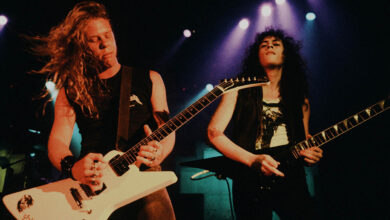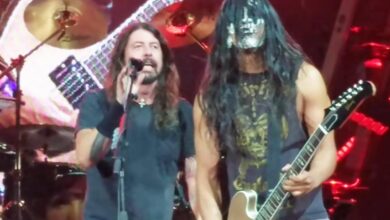Metallica’s “Monsters of Rock” performance in Moscow drew over 1.6 million people in 1991
Metallica’s performance at the “Monsters of Rock” festival in Moscow in 1991 is one of the most iconic moments in rock music history, particularly due to the massive attendance and the socio-political context of the time. This concert was held at Tushino Airfield on September 28, 1991, just a few months after the failed August coup in the Soviet Union, an event that significantly accelerated the dissolution of the USSR in December 1991. The concert became a symbol of the changing times and the powerful role of music in uniting people during periods of transition and uncertainty.
Historical Context
In 1991, the Soviet Union was in a state of significant turmoil and transformation. Mikhail Gorbachev’s policies of Perestroika (restructuring) and Glasnost (openness) had set the stage for more open expressions of dissent and calls for reform. The “Monsters of Rock” festival in Moscow, therefore, occurred at a pivotal moment in Russian and world history, representing not just a music festival but a gathering that reflected the massive social and political shifts of the era.
The Event
The festival lineup included other notable bands such as AC/DC, Pantera, and The Black Crowes, making it an extraordinary event for rock music fans in Moscow and beyond. However, Metallica’s performance stood out and is often the most remembered part of the festival. The band was at the peak of its popularity, having released the critically acclaimed “Metallica” album, also known as “The Black Album,” in August 1991.
Attendance
Estimates of the crowd size have varied, but it is widely reported that over 1.6 million people attended the concert, making it one of the largest rock concert attendances in history. The sheer size of the crowd was a testament to the band’s popularity and the hunger for Western rock music in a country that had, for decades, restricted access to such cultural expressions.
Significance
The concert was more than just a musical performance; it was a cultural event that symbolized the opening of the Soviet Union to the world and the world to the Soviet Union. For many young people in attendance, it was an exhilarating glimpse of freedom and a new cultural paradigm. The event was also notable for its relatively peaceful nature, despite the vast numbers of people and the potential for chaos.
Legacy
The “Monsters of Rock” festival in Moscow in 1991 has left a lasting legacy, not just for Metallica but for the global music scene. It demonstrated the unifying power of music across cultural and political divides and remains a highlight in the band’s career. The concert is frequently referenced in discussions about the most significant live performances in rock history and is a touchstone for the end of an era and the beginning of a new one in Russia and the broader Eastern Bloc.
In summary, Metallica’s performance at the “Monsters of Rock” festival in Moscow wasn’t just a concert; it was a historic event that mirrored the monumental changes occurring in the Soviet Union and the world at the time. It showcased the band’s incredible influence and the universal language of music, which can transcend boundaries, unite diverse peoples, and mark moments of significant historical change.





